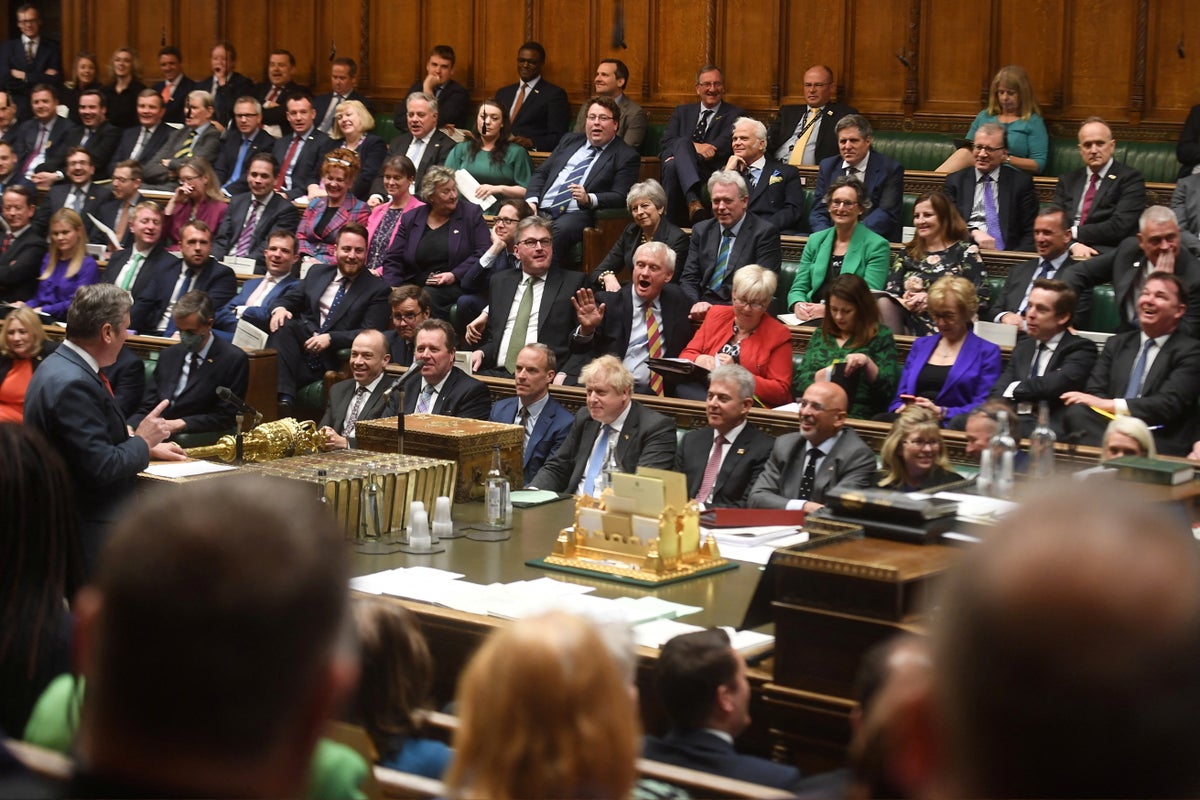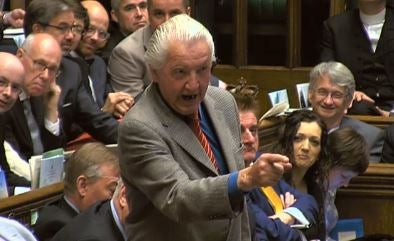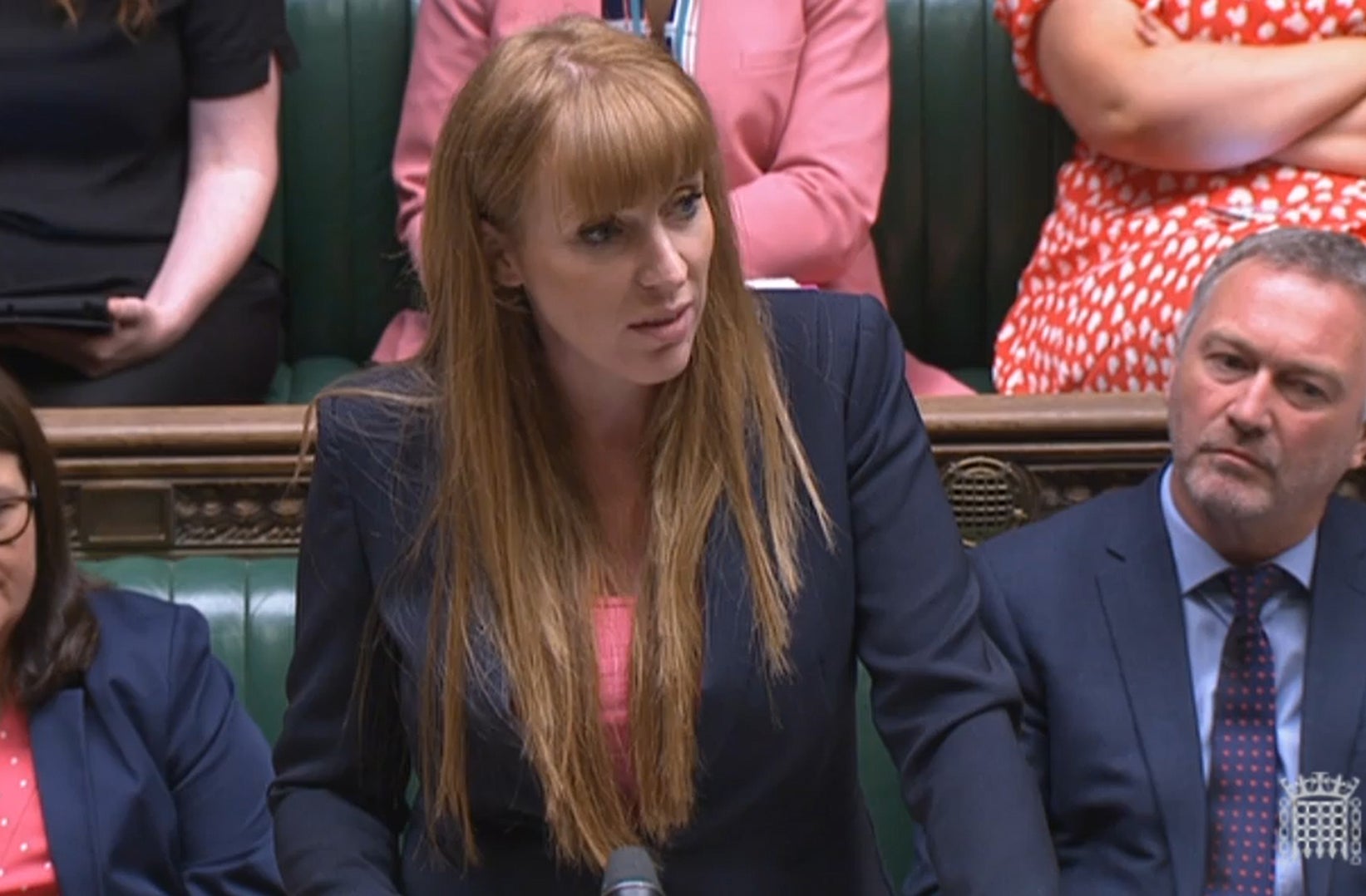
Only about 1 per cent of the Conservative Party’s MPs came from a working-class background, a new study claims.
This would equate to just three MPs out of the party’s current cohort of 356, according to the research by think tank IPPR.
Working-class MPs make up 13 per cent of the Labour Party. This is the equivalent of 14 out of 200 MPs when going by the definition of “working-class” used by the researchers.
IPPR said this figure shows that the proportion of working-class Labour MPs has more than halved since the mid-1980s.
After the 1987 election, 28 per cent of Labour MPs had worked in blue-collar jobs, such as coal mining and steel working, right before going into local or national politics.
One of these MPs from an industrial background was Dennis Skinner. He worked as a coal miner for 20 years before entering politics as a councillor. He then represented Bolsover for 49 years until he was unseated in 2019.
In contrast, the number of Tory MPs from similar working-class occupations has remained below 5 per cent for at least 50 years, the think tank said.

In total, now just 7 per cent of all 650 MPs in Parliament – a total of 45 – can be deemed to be working-class according to the IPPR’s standards.
Currently, about 34 per cent of all working-age adults in the UK are considered to be working-class, a number that has fallen over the past several decades.
Although the proportion of working-class people has shrunk, the number of MPs in Parliament from working-class backgrounds has reduced twice as fast and has led to a lack of representation on issues such as poverty and inequality – IPPR said.
The analysis, in the third paper as part of a series in collaboration with the Observer, comes as both parties go through the process of selecting candidates for the next election – which isn’t due until 2025 unless a snap election is called.
Time and money are also two big factors in someone’s ability to become a parliamentary candidate, something the think tank labelled as a “class ceiling”. Also, IPPR said, there are fewer working-class MPs because trade unions have less power than they once did to provide routes into politics for the members’ preferred candidates.
Labour’s deputy leader Angela Rayner was a care worker and a trade union representative before she became an MP for Ashton-under-Lyne in Greater Manchester.

She told the newspaper: “When I first went into parliament it was like going into Hogwarts. It can be intimidating to think of all the people who have stood at the dispatch box before me, as well as mixing with people from huge wealth, privilege and with expensive education.
“Those working in insecure or low-paid jobs are less likely to have an employer who will give them flexibility or to be able to afford to take time off work.
“Putting yourself forward for public life is not only daunting, it can be a big commitment in time and money that is inaccessible for many.
“We need a genuine cross-party discussion about how we can enhance participation in our democracy, and give ordinary people who are juggling inflexible work with other commitments more opportunities and support to run for office.”
In its study, IPPR counted the number of MPs who entered the House of Commons straight after having an occupation that the population largely regards as working-class. It also used an established academic definition of “working-class”.
In response to the findings, a Conservative spokesman said that the study underestimated the diversity within the party’s current cohort of MPs, adding that the research applies “an incredibly narrow definition of working class by only considering an MP’s job immediately before entering parliament.”
An MP who had a traditionally working-class job for years and then had a more “middle-class” job before being elected to Parliament would be excluded from the figures, he said.







